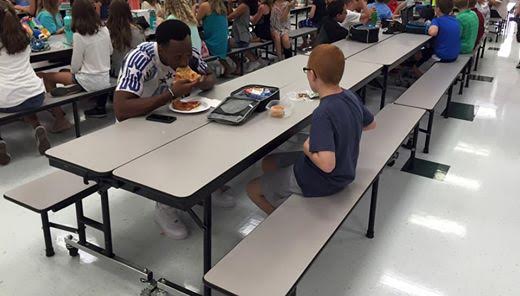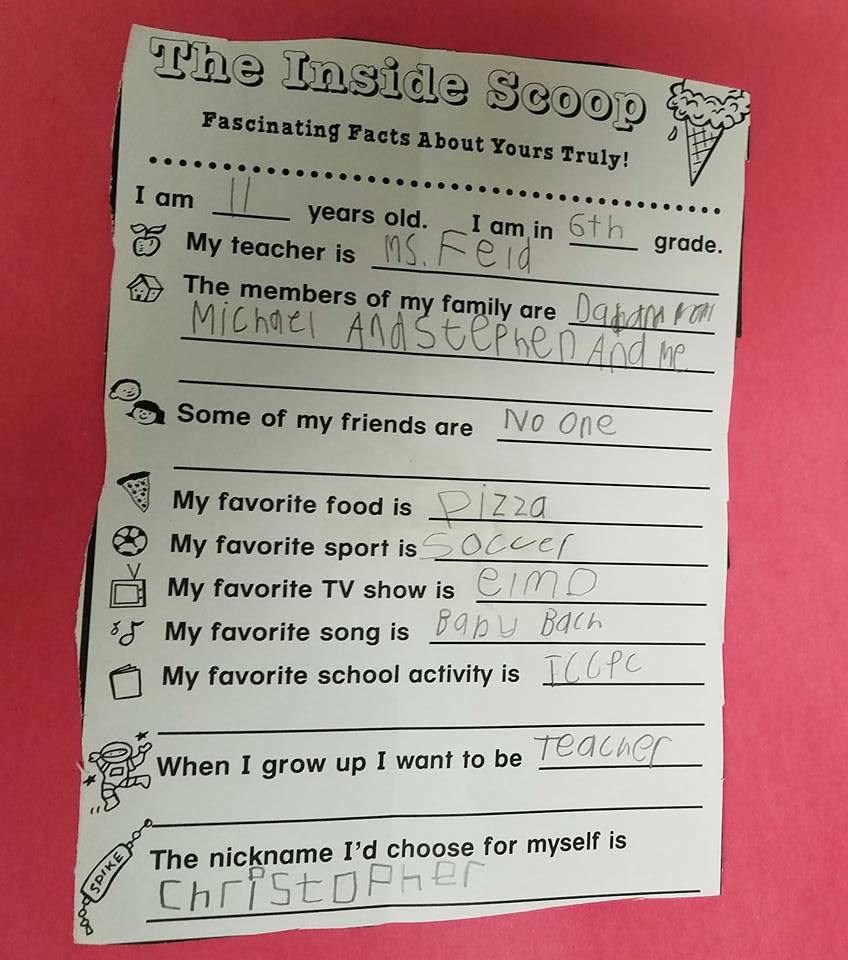This School Project Reveals What You Cannot See in This Viral Photo

By:
Earlier this month, a touching photo of Florida State football player Travis Rudolph eating lunch with an autistic boy during school went viral.
 Facebook - facebook.com
Facebook - facebook.com
The popularity of the post was driven by Rudolph's show of compassion to a young child, who had grown accustomed to being excluded by his peers.
According to the Washington Post, the boy, Bo Paske, no longer eats by himself. His mother, Leah, told the Post, “Actually, yesterday, in the cafeteria he was sitting at a table full of girls. He was the most popular kid in the room … he had a seat at the table full of people.”
Now, a father of another autistic child wants to ensure the conversation started by Paske's photo continues.
Bob Cornelius, the father of an autistic child named Christopher, shared a Facebook post pointing out what is missing from the viral photo of Paske and Rudolph taken in the middle school lunchroom.
"But in my head, I asked 'Where were those kids prior to this child being thrust into the spotlight?' We know where they were: they're in the picture: sitting at other tables, ignoring him.
If that football player had not sat down next to that child, and if it hadn't become a national news story, that kid would still be sitting by himself today."
In the post, Cornelius included the following photo:
 Facebook - facebook.com
Facebook - facebook.com
Cornelius writes:
"I guess I'm sharing this because when asked to list his friends he wrote 'no one.' Never have five letters cut so deep, and they weren't even directed at me....it was just an overly simplistic statement that spoke volumes...It's clear to me that he desperately wants to be part of the group, but his challenges make it difficult for his peers to include him."
Research suggests there's more to be gained from forming strong relationships in early childhood than just the joys of friendship. A 2005 Cardiff University study reported that "the roots of peer rejection lie in the earliest years of childhood, and peer rejection is associated with educational underachievement, even when many other causal influences are taken into account."
In the post, Cornelius says he understands it's no one's fault when "different" children are instinctively excluded, but he offers the only possible solution he can think of: "compassion." He writes about how to do this:
One: Share this post on your time line. Awareness and empathy are the only solutions I can come up with.
Two: Speak with your children. Show them the video of the Florida State Football player. The Internet is full of feel-good stories about a special needs child being included. Remember the special needs child that was put in the basketball game for the last few minutes of the final game of the season? Very recently, there was the prom king who gave his crown to a special needs classmate.
These stories are newsworthy because they are unusual. We are not used to hearing about kids being kind to those that are different and unique.
I not so naive that I think this post is going to change the world. But, if, by sharing this, I can make you think about having a conversation with your children about empathy, about going out of their way to include those that are different from everybody else, especially if it goes against the group mentality, especially if it's not socially poplar (I'm not so old that I don't remember that this takes bravery...bravery to break from the confines of what your friends think is cool in the middle and high school worlds), then I will feel like Christopher's voice has been heard. Because even though he can't say it, he wants to be included."
And it looks like people are taking this advice to heart: With nearly 27,000 shares, Cornelius's message is spreading and resonating. Read the full Facebook post below.
